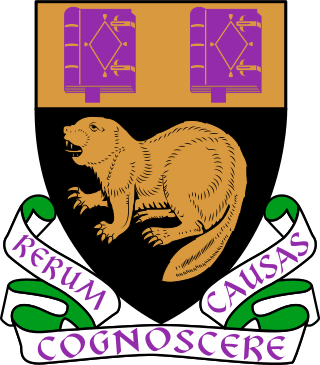
The London School of Economics and Political Science (LSE) is a public research university in London, England, and a member institution of the University of London. Founded in 1895 by Fabian Society members Sidney Webb, Beatrice Webb, Graham Wallas and George Bernard Shaw, LSE joined the University of London in 1900 and established its first degree courses under the auspices of the university in 1901. LSE began awarding its degrees in its own name in 2008, prior to which it awarded degrees of the University of London. It became a university in its own right within the University of London in 2022.

The Electoral Reform Society (ERS) is an independent campaigning organisation based in the United Kingdom which promotes electoral reform. It seeks to replace first-past-the-post voting with proportional representation, advocating the single transferable vote, and replacing the House of Lords. It is the world's oldest operating organisation concerned with political and electoral reform.

Alan Sked is a British Eurosceptic academic. He founded the Anti-Federalist League and its successor the UK Independence Party (UKIP). He is Professor Emeritus of International History at the London School of Economics and has stood as a candidate in several parliamentary elections.
David Jonathan Andrew Held was a British political scientist who specialised in political theory and international relations. He held a joint appointment as Professor of Politics and International Relations, and was Master of University College, at Durham University until his death. He was also a visiting Professor of Political Science at Libera Università Internazionale degli Studi Sociali Guido Carli. Previously he was the Graham Wallas chair of Political Science and the co-director of the Centre for the Study of Global Governance at the London School of Economics.
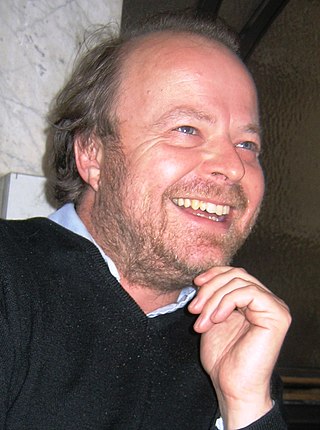
Keith Martin Dowding is Distinguished Professor of Political Science and Political Philosophy, School of Politics and International Relations, Research School of Social Sciences at the Australian National University, Canberra, Australia. He was in the Government Department at the London School of Economics, UK in 2006, and has published widely in the fields of public choice, public administration, public policy, British politics, comparative politics, urban political economy, positive political theory and normative political philosophy. His work is informed by social and rational choice theories. He edited the SAGE Publishing Journal of Theoretical Politics from 1996 to 2012.
The Public Administration and Constitutional Affairs Select Committee, previously known as the Public Administration Select Committee, is a committee designated by the British House of Commons. Its purpose is to scrutinize reports from the Parliamentary and Health Service Ombudsman, address issues pertaining to the quality of administration delivered by civil service departments, and explore various matters concerning the civil service, primarily in England and Wales, as well as constitutional affairs.
Stuart Weir is a British journalist, writer, and Visiting Professor with the Government Department at the University of Essex. He was previously the Director of the Democratic Audit, formerly a research unit of the University of Essex. Weir was a founder of the constitutional reform pressure group Charter 88, and was editor of the weekly political magazine the New Statesman from 1987–91, having previously been deputy editor of New Society, which merged with the New Statesman in 1988. Weir was editor of the Labour Party's monthly magazine New Socialist in the mid-1980s.
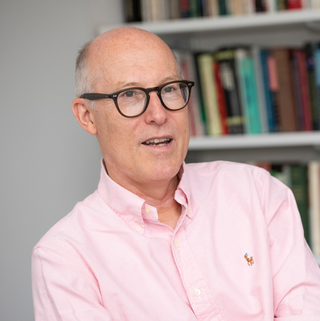
Sir Timothy John Besley, is a British academic economist who is the School Professor of Economics and Political Science and Sir W. Arthur Lewis Professor of Development Economics at the London School of Economics (LSE).
The first idea of a digital administrative law was born in Italy in 1978 by Giovanni Duni and was developed in 1991 with the name teleadministration.

Christopher Cropper Hood is a visiting professor of the Blavatnik School of Government at the University of Oxford, and an Emeritus Fellow of All Souls College, Oxford. Hood was Gladstone Professor of Government at All Souls College, Oxford, from 2001 to 2014, and director of the ESRC Research Programme Public Services: Quality, Performance and Delivery from 2004 to 2010. His books include The Limits of Administration (1976), The Tools of Government (1983), The Art of the State and A Government that Worked Better and Cost Less?. He chaired the Nuffield Council on Bioethics' Working Party on medical profiling and online medicine from 2008 to 2010.

Minouche Shafik is a British-American economist who has been serving as the 20th president of Columbia University since July 2023. She previously served as president and vice chancellor of the London School of Economics from 2017 to 2023. She also serves on the board of directors of the Bill & Melinda Gates Foundation.
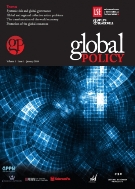
Global Policy is a prestigious peer-reviewed academic journal based at the Global Policy Institute, School of Government and International Affairs, Durham University and focusing on the "point where ideas and policy meet", published in association with Wiley-Blackwell.
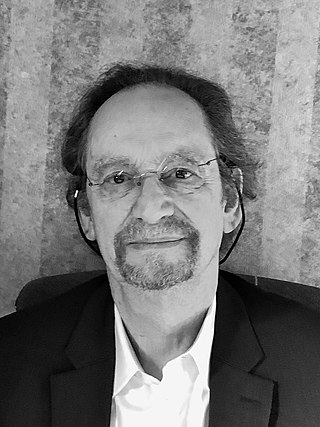
Roderick Arthur William Rhodes, usually cited as R. A. W. Rhodes, is a British professor of political science.

The International Growth Centre (IGC) is an economic research centre based at the London School of Economics, operated in partnership with University of Oxford's Blavatnik School of Government.

Colin John Crouch, is an English sociologist and political scientist. He coined the post-democracy concept in 2000 in his book Coping with Post-Democracy. Colin Crouch is currently Emeritus Professor at the University of Warwick and an External Scientific Member of the Max Planck Institute for the Study of Societies.
James Raymond Hughes is professor of comparative politics at the London School of Economics (LSE). Hughes' research interests relate to political violence and terrorism, secession, national and ethnic conflict in the former Soviet Union, the Balkans, and Northern Ireland.

Helen Zerlina Margetts, is Professor of Internet and Society at the Oxford Internet Institute (OII), University of Oxford and from 2011 to 2018 was Director of the OII. She is currently Director of the Public Policy Programme at The Alan Turing Institute. She is a political scientist specialising in digital era governance and politics, and has published over a hundred books, journal articles and research reports in this field.
LSE Cities is a research centre at the London School of Economics and Political Science.
Julia Mary Black is the strategic director of innovation and a professor of law at the London School of Economics and Political Science (LSE). She was the interim director of the LSE, a post she held from September 2016 until September 2017, at which time Minouche Shafik took over the directorship. She is the president of the British Academy, the UK's national academy for the humanities and social sciences, and became the academy's second female president in July 2021 for a four-year term.

Ruth Kattumuri is a British Indian involved in strategy, inter-government public policy, sustainable development and academia. She is Senior Director Economic, Youth and Sustainable Development at the Commonwealth of Nations. She has been co-director of the India Observatory (IO), a Distinguished Policy Fellow and Founder of the IG Patel Chair and IO at the London School of Economics and Political Science (LSE).













